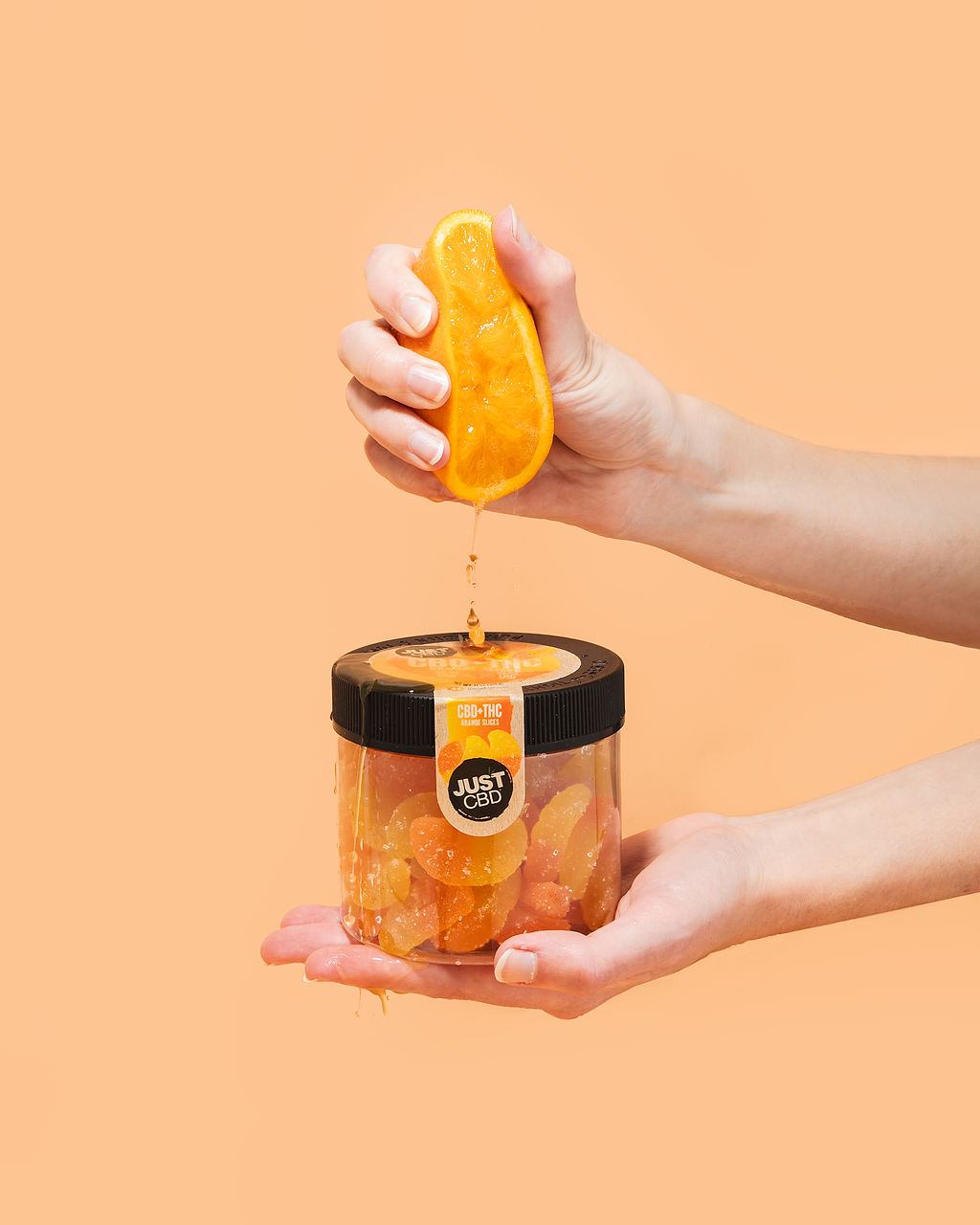Benefits of CBD for Pain Management
Pain, in all its forms, can significantly impact quality of life. For many individuals struggling with chronic pain, conventional medications often come with unwanted side effects. In recent years, cannabidiol (CBD), a non-psychoactive compound found in cannabis, has emerged as a potential natural alternative for managing pain.
Effectiveness in Treating Chronic Conditions
CBD is gaining recognition as a promising therapeutic option for pain management due to its potential benefits and relatively few side effects.
Studies suggest that CBD may interact with the body’s endocannabinoid system, which plays a role in regulating pain perception.

- CBD has shown effectiveness in managing acute and chronic pain conditions, including:
- arthritis
- nerve damage (neuropathic pain)
- multiple sclerosis
- back pain
While more research is needed to fully understand CBD’s mechanisms of action and long-term effects, early evidence points towards its potential as a natural and well-tolerated approach to pain management.
Alleviating Inflammation and Muscle Spasms
CBD’s potential benefits extend beyond just pain management. It also demonstrates promise in alleviating inflammation and muscle spasms, which often accompany chronic pain conditions.

- CBD may help reduce inflammation by interacting with the body’s inflammatory pathways.
- By modulating neurotransmitter activity, CBD can potentially ease muscle spasms and cramping.
Potential for Reducing Opioid Use
One of the most promising benefits of CBD for pain management is its potential to reduce opioid use. Opioids are powerful painkillers, but they carry a high risk of addiction and other side effects.
CBD offers a non-addictive alternative for managing pain, potentially reducing the need for opioids and mitigating their associated risks.
The Advantages of Vaping CBD
Vaping has emerged as a popular method for consuming CBD, offering several advantages over traditional ingestion methods. Vaporizing allows for faster absorption of CBD into the bloodstream, leading to quicker onset of pain relief. Additionally, vaping delivers a precise dose of CBD, enabling users to customize their experience and find the optimal level for their needs. The discreet nature of vaping also makes it a convenient option for managing pain on-the-go.
Rapid Absorption and Onset of Effects
One of the most significant advantages of vaping CBD is its rapid absorption and onset of effects.
- When CBD is vaped, it enters the bloodstream quickly through the lungs, bypassing the digestive system.
- This allows for faster delivery of CBD to the brain and other parts of the body, resulting in a quicker onset of pain relief compared to oral ingestion.
Discreet and Convenient Delivery Method
Vaping CBD offers several advantages over traditional methods of consumption, particularly when it comes to pain management. One key benefit is its rapid delivery system. When CBD is vaporized, it’s quickly absorbed into the bloodstream through the lungs, bypassing the digestive process.
This direct route allows for a faster onset of pain relief compared to ingesting CBD orally. For individuals experiencing acute pain or needing quick symptom management, vaping provides a time-efficient solution.
Customizable Dosage Control
One of the most significant advantages of vaping CBD is customizable dosage control. Vaping devices often come equipped with adjustable voltage settings or different cartridge sizes, allowing users to fine-tune their CBD intake precisely. This level of precision is crucial for individuals seeking to manage pain effectively as it enables them to find the optimal dose that provides relief without exceeding a comfortable threshold.
Concerns and Considerations
While the potential benefits of CBD for natural pain management are promising, several concerns and considerations warrant attention. The long-term effects of CBD use are not yet fully understood, and further research is needed to determine its safety and efficacy for extended periods. Additionally, the legal status of CBD varies across jurisdictions, and it’s essential to ensure compliance with local regulations. The potential for interactions between CBD and other medications also requires careful consideration, as CBD can interact with certain drugs, potentially altering their effects or leading to adverse reactions.
Potential Side Effects and Interactions
It is crucial to consult with a healthcare professional before using CBD, especially if you are taking any other medications or have underlying health conditions.

Potential side effects of CBD use may include dry mouth, diarrhea, changes in appetite, and drowsiness.
In some cases, CBD may interact with certain medications, such as blood thinners and antidepressants. It is important to disclose your CBD use to your doctor to avoid potential complications.
Lack of Regulation and Quality Control
One of the most significant concerns surrounding CBD vape pens is the lack of regulation and quality control within the industry.
- The absence of standardized manufacturing practices and third-party testing can result in products with varying concentrations of CBD and potentially harmful contaminants.
- Consumers may not be aware of the true contents of their vape pens, putting them at risk of unknowingly ingesting substances that could be detrimental to their health.
The rapid growth of the CBD market has outpaced regulatory efforts in many jurisdictions. This lack of oversight raises concerns about product safety and efficacy.
Long-Term Health Effects Still Under Investigation
While the potential benefits of CBD for natural pain management are promising, several concerns and considerations warrant attention. The long-term effects of CBD use are not yet fully understood, and further research is needed to determine its safety and efficacy for extended periods.
Additionally, the legal status of CBD varies across jurisdictions, and it’s essential to ensure compliance with local regulations.
The potential for interactions between CBD and other medications also requires careful consideration, as CBD can interact with certain drugs, potentially altering their effects or leading to adverse reactions.
It is crucial to consult with a healthcare professional before using CBD, especially if you are taking any other medications or have underlying health conditions.
One of the most significant concerns surrounding CBD vape pens is the lack of regulation and quality control within the industry. The absence of standardized manufacturing practices and third-party testing can result in products with varying concentrations of CBD and potentially harmful contaminants.
Consumers may not be aware of the true contents of their vape pens, putting them at risk of unknowingly ingesting substances that could be detrimental to their health.
The rapid growth of the CBD market has outpaced regulatory efforts in many jurisdictions. This lack of oversight raises concerns about product safety and efficacy.
Legal Status and Accessibility
Navigating the legal landscape and accessibility of CBD products can be complex. Regulations surrounding CBD vary significantly from country to country and even within different states or provinces. While CBD derived from hemp with less than 0.3% THC is legal in many places, other forms of CBD may still be restricted or illegal. Consumers must carefully research their local laws to ensure compliance and avoid potential legal repercussions.
Varying Regulations Across Jurisdictions
Legal status and accessibility of CBD vary greatly across jurisdictions. Some countries have fully legalized CBD, while others have strict regulations or outright bans. Within countries, different states or provinces may have their own specific laws regarding CBD production, sale, and possession.
Consumers need to research the specific laws in their location to ensure they are complying with local regulations.
Accessibility also depends on factors such as distribution channels and availability of retailers.
In some areas, CBD products are readily available in pharmacies, health food stores, and online marketplaces. However, in other regions, access may be limited or restricted to specialized dispensaries.
Access to Reputable Suppliers
## Future Prospects
The legal status of CBD varies greatly around the world, creating challenges for both producers and consumers. Some countries have legalized CBD completely, while others restrict its use or outright ban it. This inconsistency makes it difficult for businesses to operate on a global scale and can leave consumers unsure about the legality of purchasing and using CBD products in their location.
To ensure compliance with local regulations, it’s essential for individuals to thoroughly research the laws governing CBD in their specific region.
Access to reputable suppliers is crucial for ensuring product safety and quality. The lack of standardized manufacturing practices and third-party testing within the CBD industry raises concerns about the purity and potency of products available on the market.
Consumers should prioritize sourcing CBD from companies that are transparent about their production processes, provide detailed ingredient information, and have their products independently tested by reputable third-party laboratories.
The future prospects for CBD as a natural pain management option appear promising. Continued research is likely to shed further light on its mechanisms of action, long-term effects, and potential applications. As more evidence emerges and regulations evolve, we may see wider acceptance and accessibility of CBD-based treatments for chronic pain conditions.
Research and Development Advancements
The legal status and accessibility of CBD vary significantly across the globe, creating complexities for both producers and consumers. Some countries have fully legalized CBD, while others impose restrictions or outright bans. This lack of uniformity complicates international trade and leaves consumers uncertain about the legality of CBD products in their region.
Within countries, states or provinces often have their own specific regulations governing CBD production, sale, and possession. Consumers must diligently research local laws to ensure compliance and avoid potential legal repercussions.
Accessibility also depends on factors like distribution channels and the presence of retailers that sell CBD products. In some areas, CBD is readily available in pharmacies, health food stores, and online marketplaces. However, access may be limited or restricted to specialized dispensaries in other regions.
The absence of standardized manufacturing practices and third-party testing within the CBD industry raises concerns about product purity and potency. Consumers should prioritize sourcing CBD from reputable companies that are transparent about their production processes, provide detailed ingredient information, and have their products independently tested by accredited laboratories.
Continued research is essential to fully understand the long-term effects of CBD use and its potential applications for pain management. As scientific evidence grows and regulations evolve, we may see wider acceptance and accessibility of CBD-based treatments for chronic pain conditions.
Potential for New Delivery Methods
Legal status and accessibility of CBD products vary widely depending on geographical location. Some countries have legalized CBD completely, while others restrict its use or outright ban it. This inconsistency creates challenges for both producers and consumers, making it difficult to navigate the legal landscape and ensure compliance with local regulations.
Within countries, different states or provinces may have their own specific laws regarding CBD production, sale, and possession. Consumers need to research the laws in their specific area to avoid potential legal repercussions. Accessibility also depends on factors like distribution channels and the availability of retailers that sell CBD products.
The lack of standardized manufacturing practices and third-party testing within the CBD industry raises concerns about product safety and quality. Consumers should prioritize sourcing CBD from reputable companies that are transparent about their production processes, provide detailed ingredient information, and have their products independently tested by accredited laboratories.
Potential new delivery methods for CBD are continually being explored. While vaping has gained popularity as a rapid delivery method, research is ongoing into other innovative approaches such as transdermal patches, oral sprays, and nanoemulsions, which aim to improve absorption and enhance the effectiveness of CBD for pain management.
Affordable CBD vape pens at Just CBD
- How To Make THC Soda Stronger Without Overdoing It - May 10, 2025
- Brow Lift Treatment Near Ripley, Surrey - May 9, 2025
- Cosmelan Depigmentation Peel For Uneven Skin Tone In The UK - May 9, 2025
